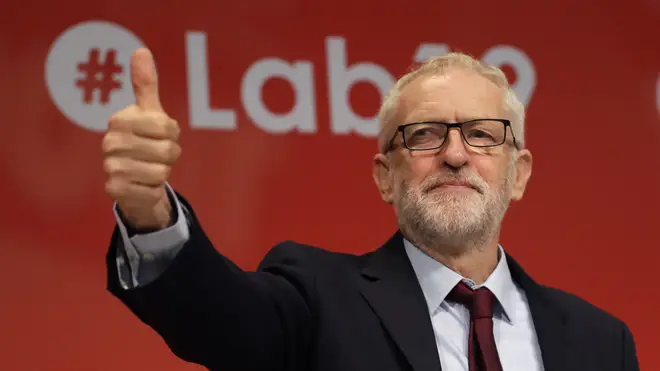
Ben Kentish 10pm - 1am
24 September 2019, 16:26

The Labour Party has agreed to back a motion to commit the UK to net zero carbon emissions by 2030 - but environmental experts and business leaders are sceptical.
This target - dubbed the “Green Industrial Revolution” - seeks to undercut the government’s current pledge by two decades, and the Liberal Democrats by 15 years.
It plans to nationalise a number of sectors including water and energy, and to increase public accessibility to electric vehicles.
2/2 We’ll deliver
— Rebecca Long-Bailey (@RLong_Bailey) September 24, 2019
💧Public ownership of water and energy
⚡️£2.5m interest free loans for EVs
🚗£300m for community car sharing hubs
🌬People to take a majority stake in all off shore wind farms
☀️1 million solar panels
🔋£1.8billion for battery production factories
And much more!
But Bob Ward, the communications director for the Grantham Research Institute on Climate Change and the Environment, told Global’s Newsroom that while this pledge is “welcome”, he was “highly sceptical” of it.
“The key is to achieve net zero without widespread damage to lives and livelihoods in the UK,” he said.
According to Mr Ward, it may be realistic for the UK to reach Labour’s 2030 target in the power sector, but this success is unlikely to expand elsewhere.
He said: “It is difficult to see how we could do this in other sectors such as transport, heating, industry and agriculture.
“For instance, we would need to have a plan for how over the next ten years we are going to replace gas central heating in 23 million properties.”
The GMB trade union also noted the effects a 2030 target would have on livelihoods, which ultimately led to the group rejecting it.
“We believe it would mean within the next decade a series of measures such as the confiscation of petrol cars, it will require the rationing of meat, it will mean limiting families to one flight for every five years.
“And it will put entire industries and the jobs they produced in peril,” the union said in a statement.
In order to carry out this transition in an “orderly” manner, the GMB continued, a “credible plan” is necessary to ensure it “does not shut down industries and harm communities in the way that we saw in the 1980s.”

Meanwhile, Mr Ward has urged the party to release its research amid concerns that it may have “overlooked the importance that targets are backed up by credible analysis and strategy.”
He asked: “How many business leaders think net zero by 2030 would be possible in their sector?”
In fact, the business sector appears to have echoed Mr Ward’s concerns, with the Confederation of British Industry (CBI) deputy director-general Josh Hardie urging Labour to work alongside businesses rather than against them.
Labour’s plan to nationalise some industries would “hugely disrupt the investment needed in the energy sector to decarbonise,” he said.
He added: “Business is at the heart of transition. It has already helped drive forward record breaking levels of renewable energy, and is on course to deliver subsidy-free offshore wind power in the 2020s.”
Mr Hardie also noted that the business sector was “completely behind” the government’s 2050 target with an already “ambitious policy”.
“The Labour Party need to work with business to make the transition a success,” he warned.
READ MORE: Labour promise dozens of state-owned offshore wind farms
Greenpeace UK’s executive director has also acknowledged the “extremely difficult” challenge to reach net zero emissions by 2030, but said: “If it can be done, it should be.”
“And if it can’t, then missing the target by a few years, or even a decade, is still a far better outcome than hitting the government’s 2050 target, which is dangerously late,” he said.